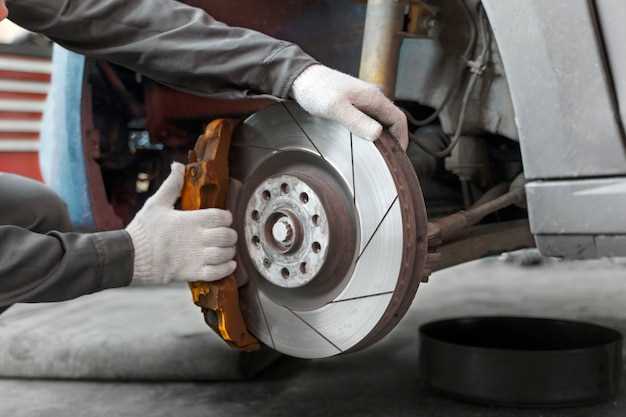
Your brakes are one of the most critical components of your vehicle’s safety system. They ensure that you can stop quickly and effectively, which is essential for avoiding accidents. Unfortunately, many drivers often overlook the signs that indicate their brakes may be failing. It’s imperative to recognize these warning signals to maintain your vehicle’s performance and, more importantly, your safety.
Ignoring the need for brake repair can lead to severe consequences, including brake failure, which can put you and other road users at significant risk. Common signs that your brakes require immediate attention include unusual noises, vibrations, and changes in responsiveness. Understanding these indicators can be the difference between a safe driving experience and a dangerous situation.
In this article, we will delve into the most common signs that your brakes need repair. By being vigilant and proactive, you can ensure your vehicle remains safe and reliable, providing peace of mind every time you hit the road.
Unusual Noises When Engaging Brakes

Hearing unusual noises when applying your brakes is a critical sign that something may be wrong with your braking system. These sounds can include grinding, squeaking, or squealing, indicating that it’s time for immediate repair. Grinding noises usually suggest that your brake pads are worn down to the metal, which can lead to further damage to your rotors and compromise your safety on the road.
Squeaking sounds often signal that the brake pads are getting low or that there is an issue with the brake components, such as moisture or debris impacting their function. Ignoring these warnings can not only result in costly repairs but also place you and others at risk while driving.
It’s essential to take any unusual brake noises seriously. Regular maintenance checks can help identify problems early, ensuring your vehicle remains safe and functional. If you hear any strange sounds when engaging your brakes, consult a professional for an inspection and necessary repair work.
Vibrations or Pulling During Braking
Experiencing vibrations or pulling while applying the brakes is a clear indication that your vehicle requires immediate attention. These symptoms often signify an underlying issue that could compromise your safety on the road.
Vibrations can result from warped brake rotors, which can occur due to excessive heat or wear. When the rotors are uneven, the brake pads do not make consistent contact, leading to a shaky feel when braking. This not only affects driving comfort but can also decrease the efficiency of your braking system.
Pulling to one side while braking is often linked to uneven brake pad wear or a malfunctioning brake caliper. If one side of your vehicle’s brakes is much stronger than the other, it will cause the car to veer to that side during braking. This can be particularly dangerous, as it impairs your ability to control the vehicle in critical situations.
Ignoring these warning signs can lead to more severe problems that require costly repairs down the line. For your safety and the overall performance of your vehicle, it is essential to have your brakes inspected and repaired by a professional as soon as you notice any vibrations or pulling during braking.
Dashboard Warning Lights Indicating Brake Issues

Several warning lights on your vehicle’s dashboard can signify potential brake problems that may compromise your safety. It’s crucial to recognize these indicators promptly and take action accordingly.
- Brake Warning Light: This light typically appears as an exclamation mark inside a circle or the word “BRAKE.” It may indicate low brake fluid, an issue with the brake system, or that the parking brake is engaged. Ignoring this sign can lead to severe braking failure.
- ABS Warning Light: The Antilock Braking System (ABS) light provides a clear indication of problems within the ABS system. If this light comes on, your brakes may function normally, but the anti-lock feature could be compromised, increasing stopping distances.
- Traction Control Light: When the traction control light activates, it can indicate that the braking system is helping to maintain traction. If the light remains on, it may suggest an underlying brake issue that requires immediate attention.
- Brake Fluid Warning Light: A specific warning light for low brake fluid is crucial to note. Low fluid levels can lead to brake failure, making it imperative to check fluid levels and the condition of the brake system.
Addressing these dashboard signs promptly is essential for maintaining your vehicle’s safety. If you notice any of these warning lights, it’s advisable to consult a professional mechanic to diagnose and repair any underlying issues before they escalate into more serious problems.

